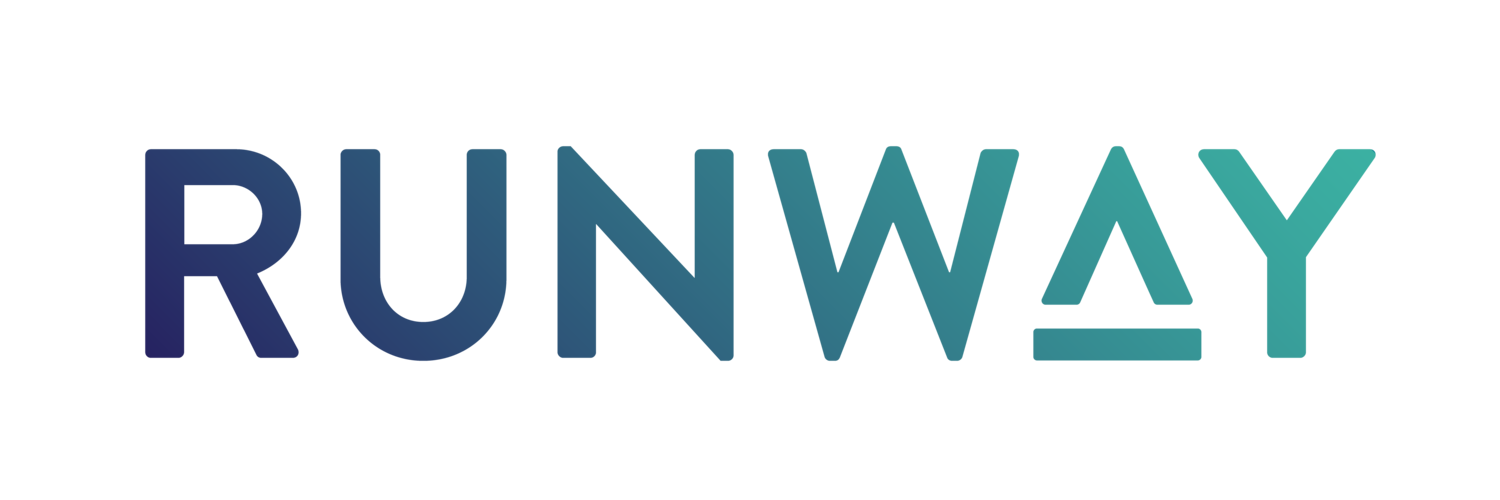Power Building is the Path to Liberation
What is it about power that stirs such a complex mix of emotions? We’ve been taught to see it as something distant—something held only by the wealthy, the well-connected, or those in positions of authority. But power is not just something given; it is something we already possess.
Power is in the choices we make, the relationships we build, and the ways we show up for one another. It is in the collective action of communities that have long been told they are powerless yet continue to innovate, create, and thrive. At RUNWAY, we know that power is not just about capital—it’s about agency, autonomy, and the ability to define our own futures.
With this vision in mind, we present the Power Building Manifesto—Our commitment to reshaping the financial landscape by centering Black entrepreneurs, shifting how capital moves, and ensuring that economic justice is at the heart of everything we do. This manifesto is a call to entrepreneurs, funders, investors, policymakers, organizers, and community partners: We all have a role to play.
Power building is about shifting who holds power, how resources flow, and who gets to shape the future. For too long, systems of oppression have worked to convince us that power is an individual pursuit, something to be hoarded rather than shared. But true power is collective. It grows when we come together, when we invest in one another, and when we refuse to let scarcity and division dictate our futures. Our work is not about asking for permission to build—it’s about reclaiming what has always been ours and reshaping the systems that were never built for us in the first place.
That’s why power building is central to our work. Through reparative capital, we’re in the business of funding equitable futures where power lies with the people. We create funds in specific regions across the U.S., working alongside local organizers, artists, creators, political figures, and community leaders to understand the infrastructure needed for long-term impact.
Building power means looking to Black entrepreneurs and culture creators to lead, innovate, and transform. It also means calling on investors and funders to be in right relationship in order to shift how capital moves to be more reparative, patient, and aligned with our vision for economic liberation. And it means working alongside community and advocacy partners who bring deep regional expertise, ensuring that solutions are rooted in the needs, histories, and strengths of the communities we serve.
Power building is about movement building. And in this political moment where DEI efforts are being systematically defunded—Power building is not just a consideration. It’s the only way forward.
How Communities Build Power
Our history shows that Black communities have always built economic systems rooted in care, cooperation, and shared power. Whether through mutual aid, Black-owned banks, cooperatives, or business districts, we have continuously found ways to create and sustain our own economies:
The Brotherhood of Sleeping Car Porters – Founded by A. Philip Randolph, this was the first predominantly Black labor union to redefine economic power for Black workers in America. The union organized workers across the country to challenge exploitation head-on, reframe Black labor as a political force, cultivate political leadership, and empower Black communities to see economic justice as a pillar of liberation.
The Free African Society, founded in 1787 in Philadelphia, is one of the earliest recorded examples of Black-led mutual aid in the U.S. At a time when Black people were systemically excluded from social services, economic opportunities, and institutional support—a reality that still persists—the FAS created an autonomous network of care, laying the groundwork for the cooperative economics and solidarity movements that continue today.
Tulsa’s Greenwood District (AKA Black Wall Street) was one of the most successful Black economic hubs in U.S. history, having over 600 Black-owned businesses at its height. In the early 20th century, it was a thriving community where Black entrepreneurship, wealth-building, land ownership, and self-determination flourished. They used informal lending circles, mutual aid, and cooperative economics, reinforcing the power of collective wealth.
The systems of racial capitalism sought to dismantle these efforts—but they never erased our power. Today, power building is about returning to these principles and scaling them for collective liberation. Power doesn’t come from a single source—it’s built at the intersections of community, capital, and policy.
RUNWAY is advancing the conversation on power building by using capital as a tool for repair, healing, and connection. We’re meeting with local leaders to understand the needs of their communities, ensuring that financial and technical resources flow in ways that strengthen economic and political agency.
Power for the Future
What does the future look like when we build power together? It looks like a nation where Black businesses are supported by financial systems that see them as investments, not risks. It looks like communities that are self-sustaining, with cooperative economics at the center. It looks like policies that are written by us, for us—protecting and uplifting those who have been left out of decision-making for too long.
We envision a future where reparative capital is the norm, not the exception.
A Call to Action
Power is not given; it’s built. And we are building it—together.
If you are an investor or funder, consider how capital can be used to not just fund, but to repair. If you are a community leader, let’s talk about how RUNWAY can support your vision for economic justice. If you are an entrepreneur, know that you are not alone—we are here to ensure that your work is not just seen but sustained.
Find ways to get involved in power building efforts in your own community. Support Black-led initiatives. Invest in reparative capital. Advocate for policies that redistribute wealth and resources equitably. The future is ours to create, and we will build it—not in isolation, but in solidarity.





